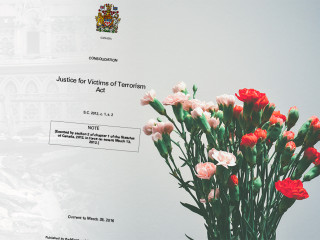This appeal to set aside a dismissal granted at a summary judgment motion was allowed on the basis that the respondents failed to present evidence going to the merits of their defence but instead attempted to compel the appellant to deliver an expert report and show that she has not done so.
Released July 13, 2016 | Full Decision [CanLII]
The appellant commenced a medical malpractice action in 2011 for damages against the respondents dental surgery performed in 2009. The respondents brought a summary judgment to dismiss the appellant’s action and were successful on the basis that the appellant had failed to file an expert report to support her allegation that the respondents did not meet the standard of care when performing her surgery. The summary judgment motion judge held that the doctor’s letter produced by the appellant was inadmissible as an expert report because it was not an affidavit upon which the doctor could be cross-examined and did not comply with rule 53.03 governing expert reports.
The Court of Appeal allowed the appeal. It stated that the principles governing the admissibility of expert evidence in a summary judgment motion are the same as those that apply at trial and must comply with rule 53.03. In this case, the doctor was not a participant expert and his letter did not meet the requirements of rule 53.03. However, the Court of Appeal further stated that fairness requires a judge to accommodate a self-represented party’s lack of familiarity with the litigation process and the Rules of Civil Procedure to enable her to present her case to the best of her ability while still respecting the rights of the other party.
The respondents had the burden of persuading the court through evidence that no genuine issue requiring a trial existed. Instead, the respondents relied on Kurdina v. Dief and submitted the appellant’s action ought to be dismissed due to the absence of expert evidence which demonstrated that there was no genuine issue requiring trial. The motion judge erred in accepting this argument. The respondents failed to file any evidence going to the merits of their defence. The respondents simply attempted to use rule 20 as a way to unfairly accelerate the delivery of an expert’s report by the appellant. The Court of Appeal found that by resorting to rule 20 to compel the self-represented appellant to deliver an expert report, without meeting their own evidentiary obligations as moving parties under the rule, the defendants used the rules in a procedurally inappropriate manner.
Read the full decision on CanLII









